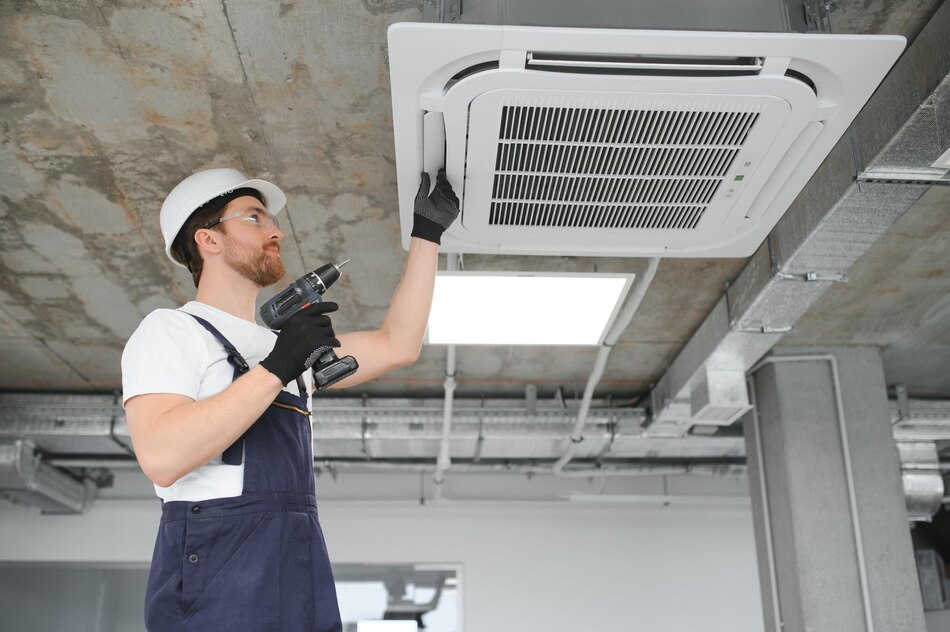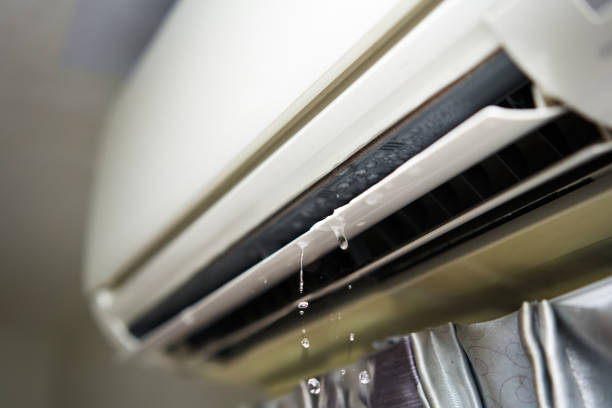While aircon units are designed to provide cool, fresh air, they can sometimes emit foul smells, which can affect the air quality in your home. Unpleasant odors may indicate an underlying issue, such as mold, bacteria, or electrical problems.
Here’s what to do if your aircon is giving off bad smells.
1. Musty or Moldy Odors
What It Means:
A musty smell coming from your aircon typically indicates the growth of mold or mildew, especially on the evaporator coils or air ducts. This problem is common in humid climates like Singapore. If moisture is trapped in the system, it can lead to mold and bacteria buildup.
What to Do:
- Turn off the aircon to stop circulating mold spores throughout the home.
- Clean the air filters and inspect the ducts for visible mold. You can use a mixture of vinegar and water to clean the affected areas.
- If the mold problem is extensive, consider calling a professional to perform a thorough cleaning of your system.
2. Burning Smell
What It Means:
A burning smell from your aircon should be taken seriously. This smell is often caused by overheating components, such as the wiring or motor, and can indicate an electrical issue.
What to Do:
- Turn off the aircon immediately and unplug it.
- Check the circuit breaker to ensure that it has not tripped due to an electrical fault.
3. Sewage-Like or Rotten Egg Smell
What It Means:
If your aircon smells like sewage or rotten eggs, it is typically due to a clogged drain line or stagnant water inside the system. The condensation from the aircon unit drains through a pipe, and if the pipe is blocked, water can accumulate, leading to unpleasant odors. This can also happen if burning dust accumulates over time.
What to Do:
- Check the drainage line for blockages, and clear it if necessary. You can flush the line with warm water or use a wet-dry vacuum to remove any clogs.
- Clean the drain pan and remove any stagnant water.

Why You Should Call a Professional for Aircon Issues
Aircon systems are complex and require specific expertise to repair safely. While some issues can be fixed with basic maintenance, it is always better to consult a professional for more complex issues. Here’s why:
1. Expertise in Diagnosing Issues
Aircon problems can range from simple fixes to more complicated issues. A professional technician has the training and experience to diagnose problems accurately and efficiently, ensuring your unit gets the right repair.
2. Safety Concerns
Handling refrigerants, electrical parts, and other components can be hazardous without the proper training. A professional technician has the knowledge to handle these elements safely and avoid any accidents.
3. Warranty Protection
If your aircon is under warranty, attempting DIY repairs can void the warranty. Hiring a professional ensures that the warranty remains intact while the issue is addressed properly.
4. Long-Term Savings
Though professional repairs may seem costly initially, they often save money in the long run by preventing further damage and ensuring that your aircon runs efficiently. Regular professional maintenance also helps extend the lifespan of the unit and prevents costly repairs in the future.
Final Thoughts
Aircons are an investment that should last for many years, but when they begin emitting strange noises or foul smells, it’s essential to act quickly to address the issue. While some minor problems can be handled with DIY repairs, serious issues like refrigerant leaks, electrical faults, or mold buildup require the expertise of a professional technician.
Recognizing the signs early and understanding when replacement is necessary will ensure your home remains comfortable and energy-efficient. Regular maintenance and timely repairs not only ensure your aircon continues to run smoothly but also improve the air quality in your home.
If your aircon is making strange noises or emitting unpleasant smells, don’t hesitate to call in a professional. With expert help, you can restore your home’s cooling system to its optimal state and continue enjoying a comfortable environment, no matter the weather outside.



You must be logged in to post a comment.